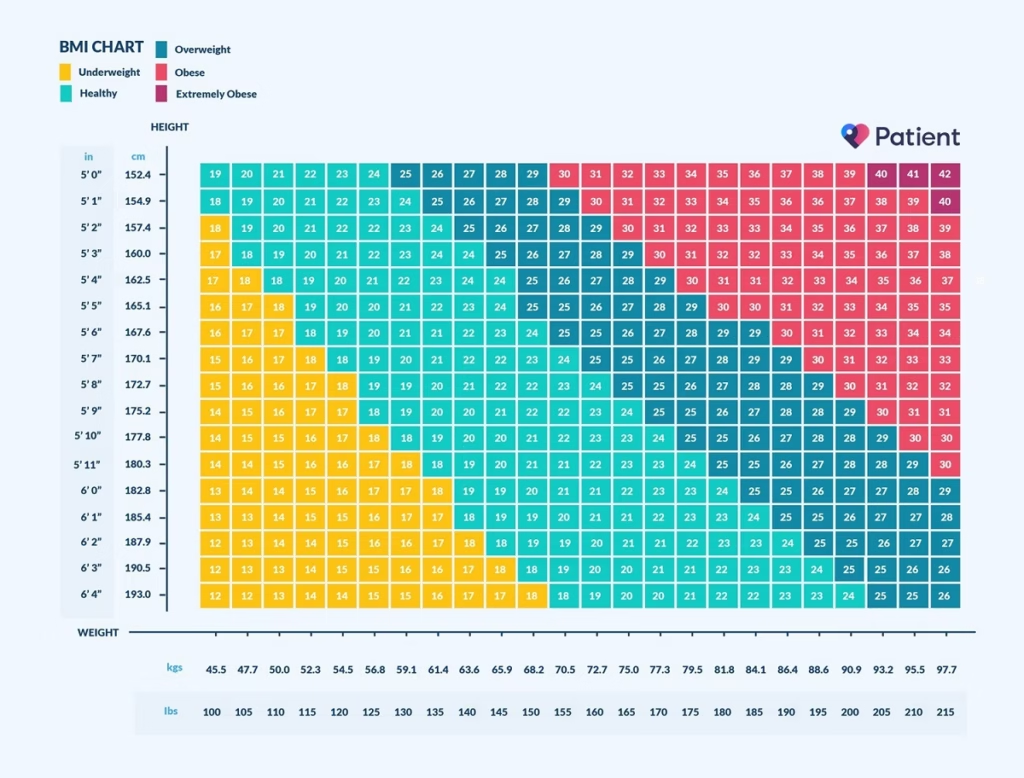What is BMI?
The Body Mass Index (BMI) calculator is a tool. It calculates your BMI, which is a numerical value derived from an individual’s weight and height. It provides a standardized method to categorize individuals into various weight categories. This helps assess potential health risks linked with being underweight, overweight, or obese.
How to Calculate BMI with BMI calculator
The formula for calculating BMI is:
- Metric Units:
BMI = Weight (kg) / [Height (m)]² - Imperial Units:
BMI = [Weight (lb) / [Height (in)]²] × 703
For example, a person weighing 70 kg with a height of 1.75 meters would have a BMI of:
BMI = 70 / (1.75)² = 22.86
BMI Categories
The World Health Organization (WHO) classifies BMI ranges as follows:
- Underweight: BMI less than 18.5
- Normal weight: BMI 18.5 – 24.9
- Overweight: BMI 25 – 29.9
- Obese: BMI 30 or greater
Why is BMI Important?
BMI serves as a quick screening tool to find potential weight-related health issues:
- Underweight individuals face risks like malnutrition, osteoporosis, and weakened immunity.
- Overweight and obese individuals are at increased risk for conditions like heart disease, type 2 diabetes, and certain cancers.Medical Notes
Limitations of BMI
While BMI is a useful general indicator, it doesn’t account for:
- Muscle mass: Athletes have a high BMI due to increased muscle, not fat.
- Fat distribution: BMI doesn’t show where fat is distributed in the body.
- Age and gender differences: Body composition varies with age and between sexes.
How to calculate BMI using BMI calculator
To simplify the process, use our interactive BMI calculator below:
BMI Calculator
Underweight: <18.5 | Normal: 18.5–24.9 | Overweight: 25–29.9 | Obese: ≥30
Interpreting Your BMI Results
- Underweight (BMI < 18.5): Consider consulting a healthcare provider to assess potential underlying causes.
- Normal weight (BMI 18.5 – 24.9): Keep a balanced diet and regular physical activity.
- Overweight (BMI 25 – 29.9): Evaluate lifestyle habits and consider modifications to diet and exercise routines.
- Obese (BMI ≥ 30): Seek medical advice for comprehensive health assessment and guidance.

(courtesy: Patient.info)
Tips for Maintaining a Healthy BMI
- Balanced Diet: Incorporate a variety of nutrients, including fruits, vegetables, lean proteins, and whole grains.
- Regular Exercise: Aim for at least 150 minutes of moderate aerobic activity or 75 minutes of vigorous activity weekly.
- Watch Progress: Regularly check your BMI and adjust lifestyle habits as needed.
- Consult Professionals: Seek guidance from healthcare providers or nutritionists for personalized advice.
Conclusion
Understanding and monitoring your BMI is a proactive step toward maintaining overall health. While it’s a valuable tool, always consider it alongside other health indicators and consult professionals for comprehensive assessments.






Leave a Reply